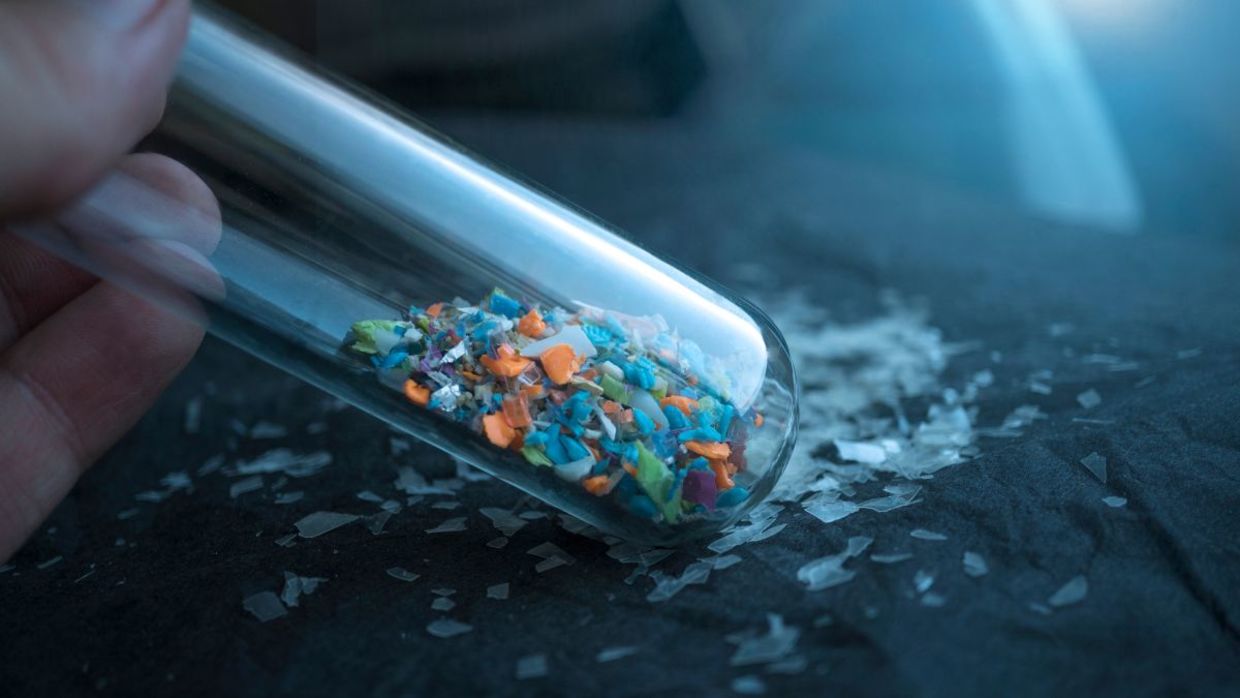
(SIVStockStudio / Shutterstock.com)
Scientific research is finding important uses for everyday items. This is certainly the case with plants. Now two common vegetables have been found to have properties that can remove microplastics from water.
A recent study, published in ACS Omega found that an extract that was derived from okra and fenugreek – a plant with medicinal benefits – can be used to develop a safe and effective way to remove microplastics pollutants from waterways.
This is really important since exposure to microplastics have become widespread in the environment, reported The Independent. Microplastics are produced during manufacturing or when the plastic debris breaks down in rivers and oceans. These microplastics pose a significant health hazard because they get into the food chain.
About the Research
The researchers from Tarleston State University in Texas, were looking for a safe plant-based way to remove microplastic pollutants from water. In previous lab experiments they tested okra and fenugreek and found that these all natural polymers stuck to microplastics and made removal easier, according to SciTechDaily. That’s due to the same sticky substance that gives fenugreek a gel-like texture and okra its slimy feel.
To extract the plant polymers, the researchers sliced okra pods to use and placed it in a container of water and also soaked fenugreek in a separate container. They then removed the dissolved extracts and dried them into powders that contained polysaccharides which are polymers.
The team led by Rajani Srinivasan, an author of the study from Tarleton State University, found that extracts from okra and fenugreek can remove up to 90 percent of microplastics from fresh, ground, and ocean water. In fact, the natural polymer performed better than the synthetic polyacrylamide polymer which is used in wastewater treatment, but this natural and nontoxic method could be a safer alternative.
“The whole treatment method with the non-toxic materials uses the same infrastructure,” Srinivasan said in a press release from the university “We don’t have to build something new to incorporate these materials for water treatment purposes.”
Going Forward
When tested in water collected from local waterways, the researchers found that the extracts were not identical in the way they worked, according to the press release. Okra worked best in ocean water while fenugreek worked best in ground water. A combination of the two removed the most microplastics from freshwater.
The researchers plan to scale up the removal of the pollutants in field studies and to eventually commercialize the method.
“Utilizing these plant-based extracts in water treatment will remove microplastics and other pollutants without introducing additional toxic substances to the treated water,” Srinivasan said in the study, “thus reducing long-term health risks to the population.”
YOU MIGHT ALSO LIKE:
Seagrass Naturally Cleans the Sea
These Very Hungry Caterpillars May Help With Plastic After All!
Ocean Farmers Grow Food That Cleans up Pollution and Tastes Good Too







